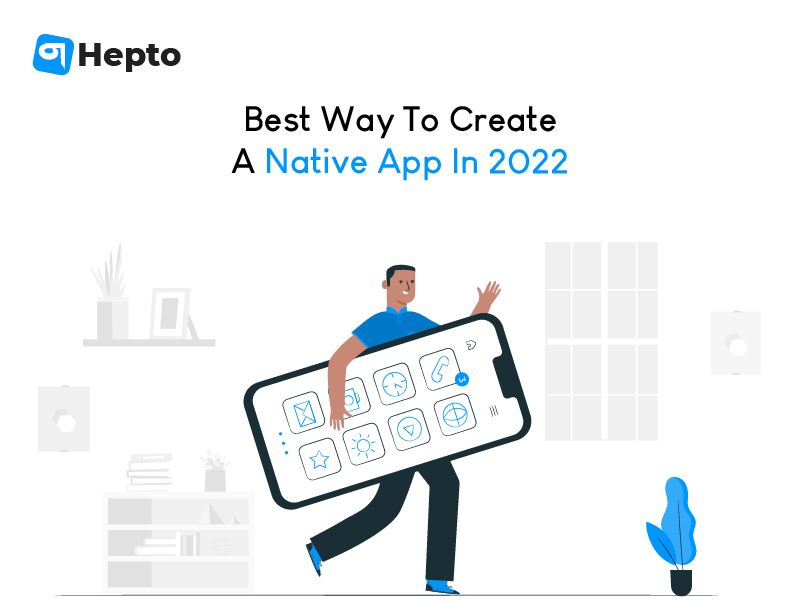Best Way to Create a Native App in 2022
Mobile app development has reached its peak in the past few years. Around 3.5 billion people are on their smartphones including 74.14% of users on Android, 25.26% on iOS, and 0.6% on other platforms. These statistics are the conclusion of Native App Development and Native apps are applications which are compatible with a single platform like either Android or iOS or others.
The app developer has got three prominent options
- Build a dedicated app for each platform
- A cross-platform app development framework is used to re-use code for each platform
- Build a progressive web application (PWA).
In this blog, we describe the best way to create a native app in 2022. Read out the options in the blog and implement the native app when needed.
What is a Native App?
A native app is an application built in a specific programming language for a specific device platform, either iOS or Android installed from app stores. For Native apps, you have to invest more in terms of money, time, and effort, and launching a native mobile app requires validation from app stores because iOS and Android platforms are developed separately.
Native mobile apps are built in platform-specific languages and Native app developers use Java or C++ for Android apps, Swift or Objective-C for iOS apps, and C# for Windows Phone apps.
The benefits of Native Apps:
- Greater interconnectivity with in-built Device features
- App Usage Speed - Faster than Web Apps
- Offline Access and Updates - Can work without the internet based on the nature of the app
- Higher Security - Increased safety and security because of being approved by the respective app store
- Native App Developer Tool Availability - Developers can be easier to develop because of the availability of developer tools, interface elements, and SDKs
Reasons To Pick Native App Development:
- Speed- builds specially for a target platform so it is faster.
- Focus on Security - have security protocols that work through all the layers of an OS.
- Performance is a Priority - building mobile apps natively will lead to better performance.
- Need Interaction - with native apps, you can expect greater interactivity.
Reasons To Leave Native App Development:
- More expensive to build than web apps - Native apps come with a hefty price tag due to their highly specific nature and optimization by the device
- Compatibility with different platforms - Designing and building the app from scratch (i.e. iOS and Android)
- Costly to Maintain - Expensive to maintain and update
- App Approvals - difficult to get a native app approved by the app store
What is the Best Way to Create a Native App in 2022?
It depends on your business needs and requirements. If your business requirements are access to hardware features, restricted iOS features, or need high levels of performance, then a native application is the only option.
You will need to pass constantly changing app store acceptance criteria to be listed on the iOS App Store. There is one way to meet these criteria with a high-quality native application.
If your app is in a hyper-competitive segment a native app should be recommended. `
Conclusion
In this blog, we have discussed the platform which is most suitable to develop a native application. Simultaneously, if you are planning to have a native app or a cross-platform app, Hepto Technologies is the right place for you. We are the leading mobile app and web development company based in India. We would like to introduce our company which has more than 10 years of experience in App Development. We have an excellent track record for the best customer satisfaction and never compromising on the quality and the services given to our clients with the most cutting-edge technology at a competent price. We build custom mobile applications that match your business requirements in your desired niche on both Android and iOS platforms.
